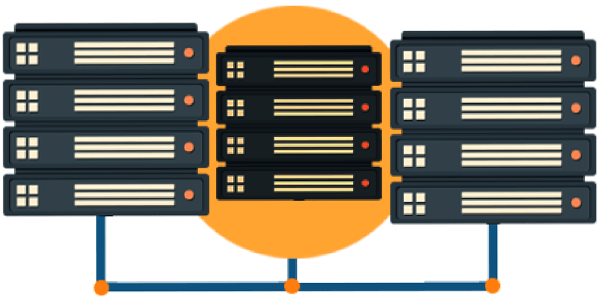
Host choice and the process of identifying the right data center for your company’s web hosting needs is one of the most challenging but essential decisions that you’ll have to make. It will depend a bit on how important the web component of your company is, but, in the modern era, it is highly likely that web will play a huge part of your company’s operations. And, even if it plays a minor role, there are still a lot of tangible benefits to ensuring that your site is held and managed professionally, with little room for unprofessionalism on this front.
One of the options available to you when it comes to web hosting is the practice of ‘colocation.’ Colocation hosting or housing perhaps more accurately is the concept of hosting the servers you need to support your website proficiently in a space owned by a third party. Usually, you would pick somewhere already involved in website hosting, a data center for example, which has servers housed there already, for convenience and a guarantee of proficiency. The concept can be a bit confusing, especially in comparison to regular hosting, so, let’s take a look at some of the ins and outs of colocation hosting and why it might be an excellent option for you and your company’s web housing needs.
What Is Colocation Hosting About?
Colocation is like a sized down version of storage for physical servers. When a company has web hosting demands, you often see them turn to two traditional options. On the one hand, they might build their own data center. This is, as you can imagine, time-consuming and expensive, a significant investment for early stage, even mid-tier companies. On the other hand, you might see them try and host servers out of their own office. The problem with in-house server maintenance is that servers are very cumbersome and annoying to have about your office. You can segment them in a room, but the heat and noise are still issues to contend with, and the financial investment in trying to maintain the servers will make you start wondering if their might have been a sleeker option. Colocation is an excellent middle ground option that works based on something like an Über model, where pre-existing spaces already custom built for server hosting rent out space to those that need it.
Advantages Of Colocating
The benefits of colocation are pretty self-explanatory. It’s far cheaper than building your own data center, and it’s still less expensive than just putting the servers in your own office, not to mention far more convenient. The convenience extends to the fact there isn’t a sense in which server ‘maintenance’ is left in your hands but in the centralized hands of the data center itself. Furthermore, it’s in a place that is purpose-built for doing what you want to be done, which means there’s rarely any technical issues and, if there are, they are dealt with on site. Running through all of this is that you still own the servers, you’re not renting the servers (though you could), instead you’re renting the space, so all of the configurability is still in your hands. So it offers you a flexible, affordable and professional solution to something which, at times, can be an extremely annoying thing for a company to have to deal with.
Potential Problems To Look Out For
Having espoused all of the benefits of colocation, it’s vital, if you are at all interested in it, to take a look at any of the potential drawbacks, even just to be informed about the elements of it that present a challenge, so that you are equipped to deal with them as they crop up.
The first thing worth talking about is that there is a difference in the right colocation hosting provider and a bad one. It’s not the case that you can find any center and rely on it providing the kind of professional, up to date service that your company is looking for. There is a degree of trust in leaving your servers under the purview of a total third party, especially when any problems not dealt with efficiently could end up costing your company in a serious way. It is vital that you can trust your center of choice wholly. You need to investigate the testimonials relating to your center of choice and make sure that you investigate it thoroughly before jumping in.
Secondly, the pricing of this sort of thing can be confusing and usually involves costs which don’t immediately appear. It’s really important that you get a complete picture of your bill in advance of signing on. The hidden costs usually relate to the fact that you’re not just renting a plot of land inside the walls of the center, it’s a complex network, a structure of interdependency that generates baseline costs for you, usually about energy and other maintenance costs. These can sting if you aren’t thorough in your analysis of your rental contract, so make sure you are.
Another important problem that you might run into, a problem which is indicative of positive progress admittedly, is the issue of upgrading. You never, as a company, want to put your server in a data center with no possibility when it comes to scalability. The reason for this that the effort you go to establish your servers in the first place will be a waste if, hen your company grows, and you need to upgrade the server that isn’t an option, space-wise, in the center.
Conclusion
Overall, colocation housing is an excellent option for most companies. It offers flexibility, ease of access, technical solutions, and reasonable pricing for something which can otherwise prove incredibly challenging to handle. Just be very thorough in the research of your chosen location to avoid getting caught short in the long run.


 Copyright 2000-2026, WebSitePulse. All rights reserved.
Copyright 2000-2026, WebSitePulse. All rights reserved.